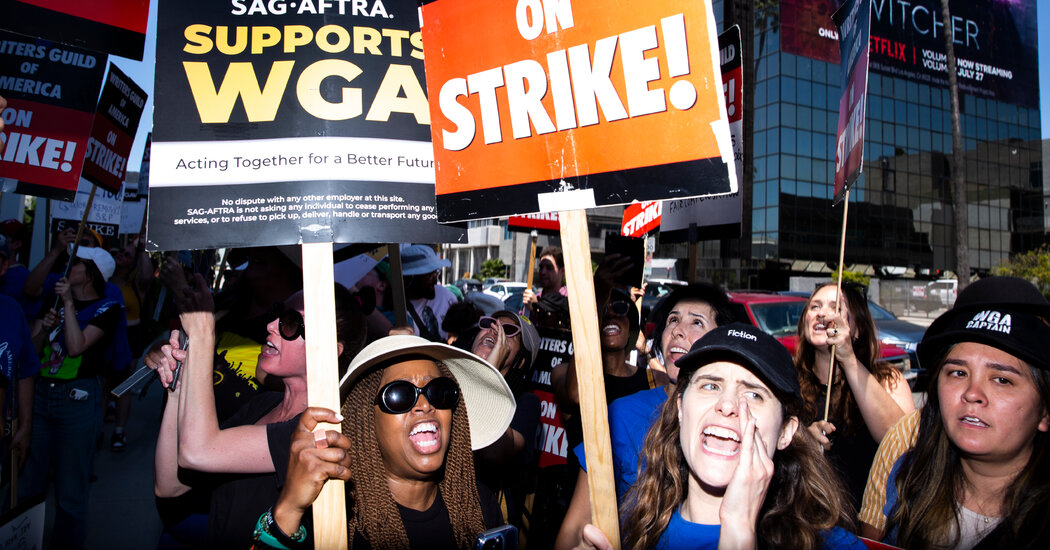Like the standout writers, leaders of SAG-AFTRA, the actors’ union, have described their labor dispute in stark terms, calling the present moment “existential” for their members.
And like the writers, they’ve argued that this was fast approaching crisis due to the massive explosion of streaming entertainment over the past decade.
“We want to make sure that acting can be a sustainable career choice for people, not just the 100 most famous celebrities in the world, but for the entire large population of our members,” Duncan Crabtree-Ireland, the chief negotiator for the union, said in a statement. a recent interview. “They should be able to make a living and you know, pay a mortgage or pay rent like everyone else.”
The actors have raised a number of grievances, including the rules for self-recorded auditions, a pandemic phenomenon that has resulted in fewer live casting sessions.
But the core issues were about compensation, as well as the use of artificial intelligence. The union has argued that compensation for actors – particularly residuals, a kind of royalty payment – has “seriously eroded” in recent years. If a television series was a huge success in the old system, actors could count on significant residual checks in their bank accounts years later. In the streaming era, the actors argue, the pie has gotten smaller, as have the checks.
“We are fundamentally interested in ensuring that our members share in the success of the projects they undertake,” said Mr. Crabtree Ireland.
The actors are also deeply concerned about artificial intelligence and how the technology can be used to replicate their performances with their previous work without being compensated or consulted.
Tara Kole, an attorney at the entertainment law firm Johnson Shapiro Slewett & Kole, which represents actors such as Emma Watson and Ashley Judd, said in an interview that the potential use of artificial intelligence was “terrifying” for actors.
“I think that’s become the persistent problem,” said Ms. Cole. “It feels existential and people don’t understand it. It’s new. It is scary. Everyone is afraid that they will suddenly be in a sequel to a film and that they will not be paid for their work.”
Mr Crabtree-Ireland, the chief negotiator, said of AI: “We have a real interest in making sure something important is done about this so we don’t try to solve it retroactively three years from now. It must happen now.”
In a statement, the Alliance of Motion Picture and the Television Producers, which negotiates on behalf of the studios, said early Thursday morning that they were offering “historic wage and residual increases” and offered a “groundbreaking” AI proposal that “protects the actors’ digital likeness.” ”
“Instead of continuing to negotiate, SAG-AFTRA has set us on a course that will exacerbate financial hardship for thousands who depend on the industry for their livelihoods,” the studios said.

